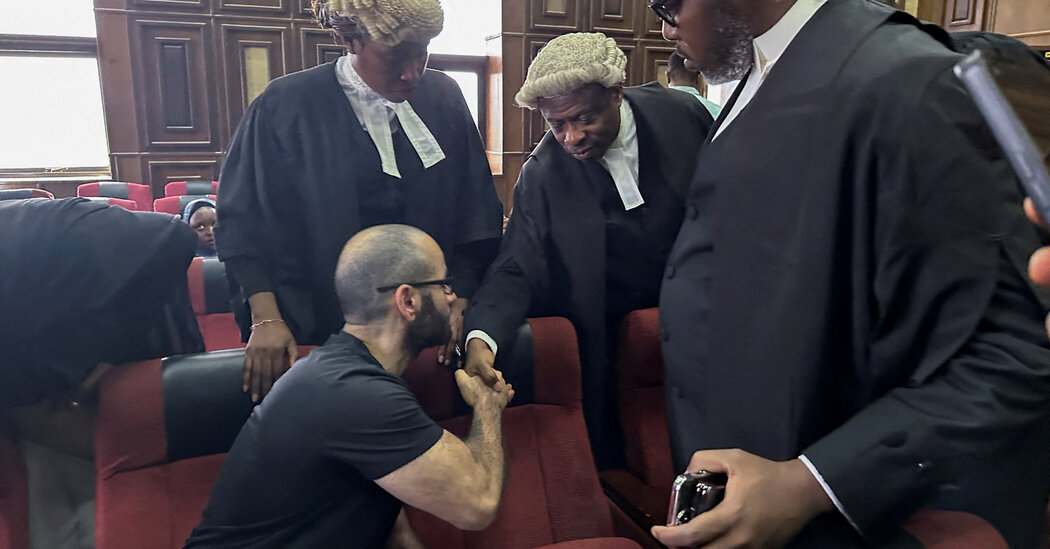

In late February, Tigran Gambaryan, a senior compliance officer at the cryptocurrency exchange Binance, embarked on a business journey to Nigeria, packing for what was supposed to be a brief two-day stay. With a background as a former U.S. law enforcement agent, Gambaryan was well aware of the risks involved in visiting Nigeria, particularly due to a prior incident that saw him and his colleagues hastily exiting the country to avoid potential detention by local authorities.
Approximately one and a half months following his arrival, Gambaryan found himself detained at Kuje prison in Abuja, a facility notorious for housing members of extremist groups such as Islamic State and Boko Haram. His detainment followed a meeting with Nigerian government officials on February 26, after which he and Binance’s regional manager for Africa, Nadeem Anjarwalla, were taken to a guesthouse under the watch of Nigerian security, without any formal charges being pressed against them.
Matters took a dramatic turn when Anjarwalla managed to escape from the guesthouse under mysterious circumstances, rumored to have occurred when guards allowed him to leave for Ramadan prayers. Following his escape, the Nigerian government swiftly brought charges of tax evasion and money laundering against Gambaryan, Anjarwalla, and Binance as an entity, accusing the company and its employees of engaging in financial crimes.
In the wake of these events, Binance issued a statement on April 3, refuting any suggestion that Gambaryan had decision-making authority within the company and emphasizing ongoing discussions with Nigerian government officials. The company’s spokesperson, Brad Jaffe, expressed respect for the Nigerian government and reinforced Binance’s commitment to engaging in constructive dialogue.
Gambaryan’s predicament is yet another chapter in Binance’s tumultuous legal history, as the exchange continues efforts to recover from a hefty $4.3 billion settlement with U.S. agencies over charges related to sanctions violations and enabling criminal activities. The case underscores the broader challenges the crypto industry faces in aligning with legal standards globally, particularly as jurisdictions like Nigeria become increasingly important centers for digital currency activity, driven by local economic conditions and high rates of crypto adoption.
Binance had hoped to mend relationships and collaborate with Nigerian authorities to combat financial crime within the crypto space. However, these ambitions soured amid accusations from Nigerian officials that Binance was perpetuating crimes similar to those it faced in the United States.
The narrative of Gambaryan’s detention is shaped by a complex interplay of international business operations, local economic policies, and global financial regulations. It highlights not only the personal risks faced by individuals navigating the cryptocurrency landscape but also the evolving relationship between governments and an industry built on principles of decentralization and resistance to traditional financial systems. As the situation continues to unfold, the implications for Binance, its employees, and the wider crypto market remain significant, underscoring the precarious balance between innovation and compliance in an increasingly interconnected financial world.
Source


/cdn.vox-cdn.com/uploads/chorus_asset/file/25404681/pal_promo.png)



